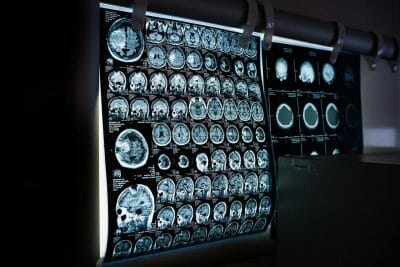When you need to have a scan of your body, you might be wondering what type of scan is best for you. Two common scans are the CT scan and the MRI scan. But even though they both create images of the inside of your body, they do it in different ways. To help you understand the difference between a CT scan and an MRI scan, we’ve collaborated with Mermaid Beach Radiology. They are a modern, world-class radiology practice that uses the latest technology to provide high-quality images.
What Is a CT Scan and How Does It Work
A CT scan is a radiology procedure that produces detailed images of the body using x-rays and computer technology. For example, you can use a CT scan to visualize bones, organs, and blood vessels. In addition, it is often used to diagnose problems such as tumors, infections, and injuries. CT scans are non-invasive and usually take less than 30 minutes. The patient lies on a table during the procedure while an x-ray beam sweeps around the body. The x-rays are then detected by the CT scanner and transmitted to a computer, which produces a detailed image of the body. CT scans are typically performed as an outpatient procedure. ys are then detected by the CT scanner and transmitted to a computer, which produces a detailed image of the body. CT scans are typically performed as an outpatient procedure. For more information, you can visit craftbodyscan.com.
What Is an MRI Scan and How Does It Work
Magnetic resonance imaging (MRI) is a diagnostic imaging method that produces detailed images of the human body. MRI scan creates images of the body organs using a powerful magnetic field and radio waves. MRI is a non-invasive procedure that involves no surgery or exposure to ionizing radiation, such as X-rays. Instead, it employs magnetic fields and radio waves to produce detailed images of the inside of the body. The images produced by MRI are very precise and can be used to diagnose a wide range of conditions. In addition, MRI is an extremely versatile tool that can image almost any part of the body, including the brain, spine, joints, and organs.
The Distinction Between a CT Scan and an MRI Scan
A CT scan uses X-rays to create cross-sectional images of the body, while an MRI scan uses magnetic fields and radio waves to create detailed images of the body. Both types of scans you can use to look for abnormalities in the body, but CT scans are more effective at identifying problems with bones and soft tissue, while MRI scans are better at identifying problems with organs and blood vessels. Moreover, CT scans are typically faster and more affordable than MRI scans. As a result, CT scans are often used as the first line of investigation when looking for problems in the body, while MRI scans are reserved for cases where a more detailed image is needed.
Why Doctors More Often Recommend CT Scans Over MRI
Doctors must make daily decisions on the best diagnostic imaging for their patients. In many cases, they will recommend a CT scan over an MRI. The main reason is that CT scans are faster and more affordable than MRI scans. It may cost less money for an individual to get a CT scan, but nowadays, MRI scan costs have been made affordable as more scanning centers offer people to get private MRI scans to skip the long wait lists and get the scan results as early as possible. But there are other reasons as well. For example, CT scans have a lighter footprint on the environment, as it uses less energy. And CT scans expose patients to less radiation than MRI scans.
Which Kind of Scan Is Best for You
The type of scan best for you will depend on your situation. Your doctor will consider several factors when making a recommendation, including the type of problem being investigated, your health history, and your personal preferences. If you have any questions about which type of scan is best for you, be sure to ask your doctor. They will be able to provide you with more information and help you make the best decision for your situation.
Conclusion
No matter which type of scan your doctor recommends, both CT and MRI scans are safe and effective diagnostic tools. If you have questions about which scan is best for you, ask your doctor. They will be able to provide you with more information and help you make the best decision for your situation.
Moreover, check out our website if you want more information on these types of scans. We have a wealth of resources to help you better understand these procedures.
Have you ever had a CT scan or MRI? What was your experience like? Let us know in the comments below.
